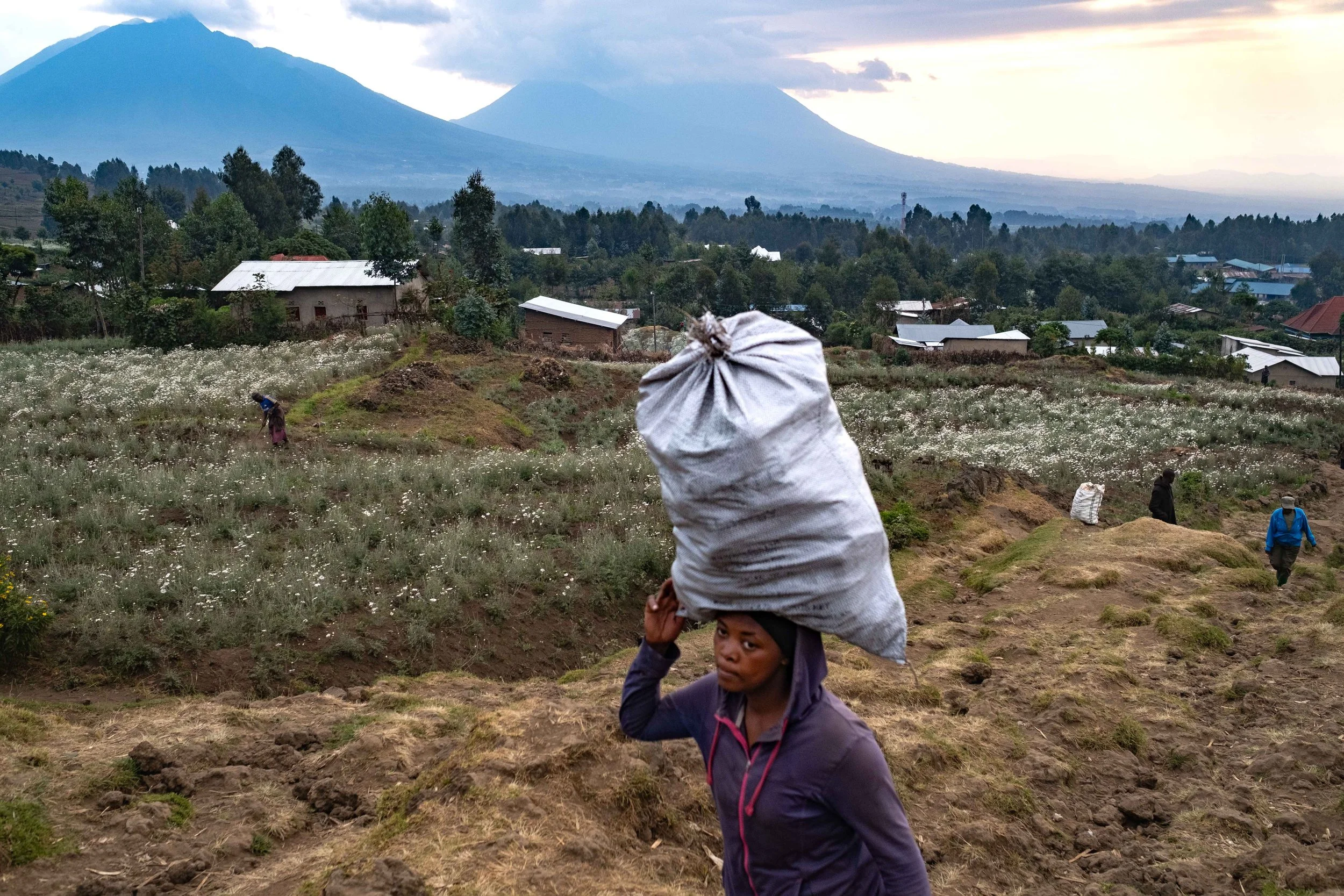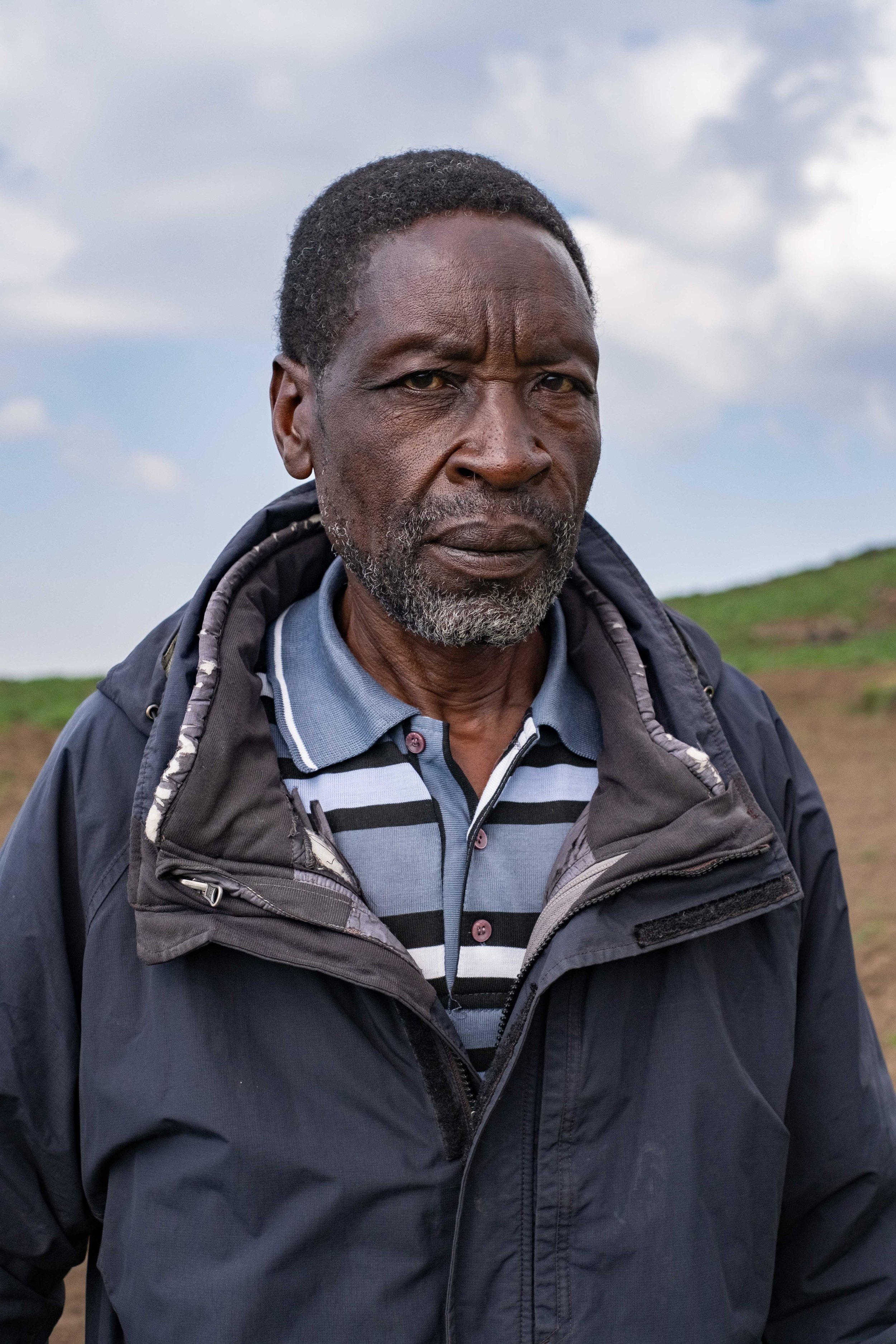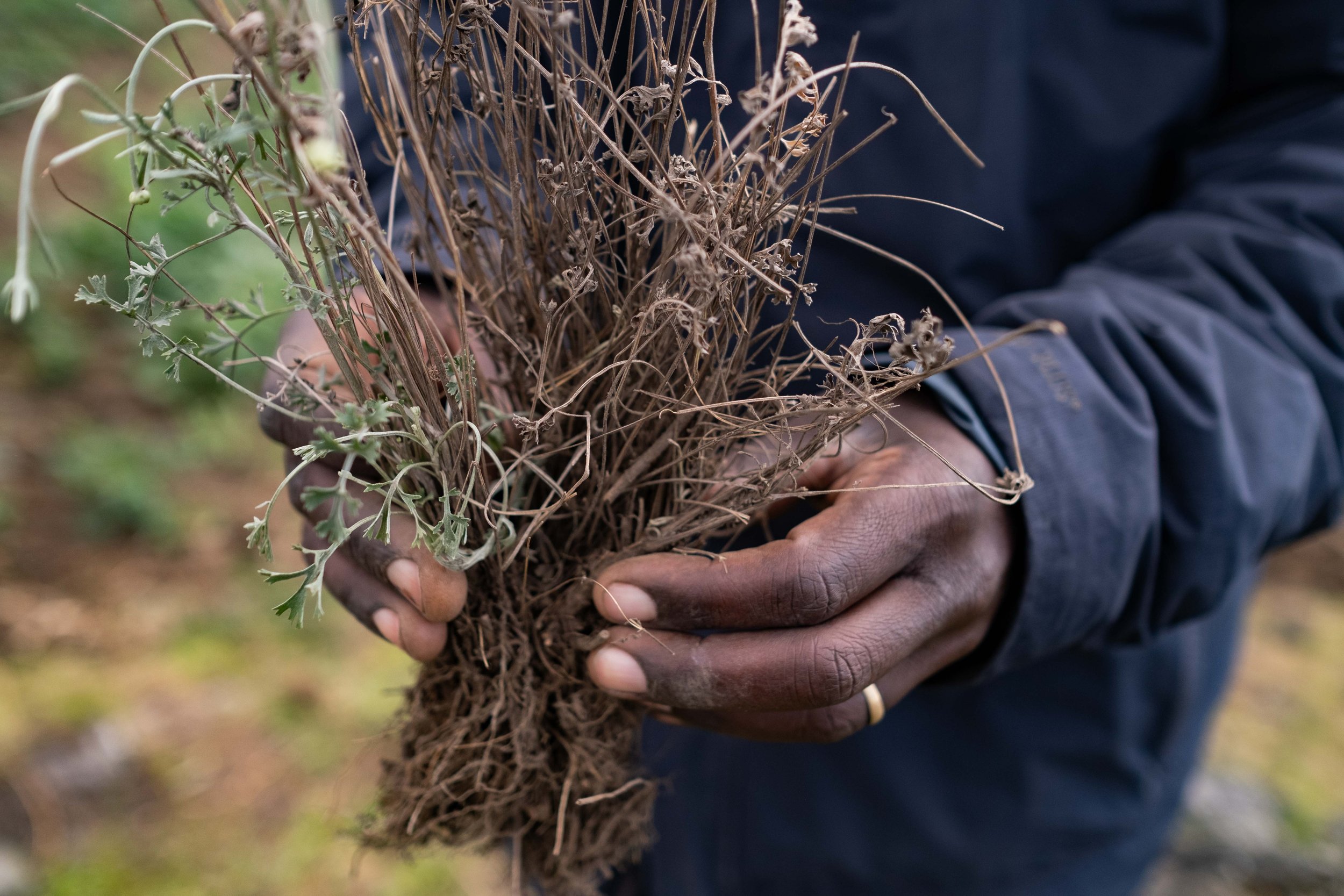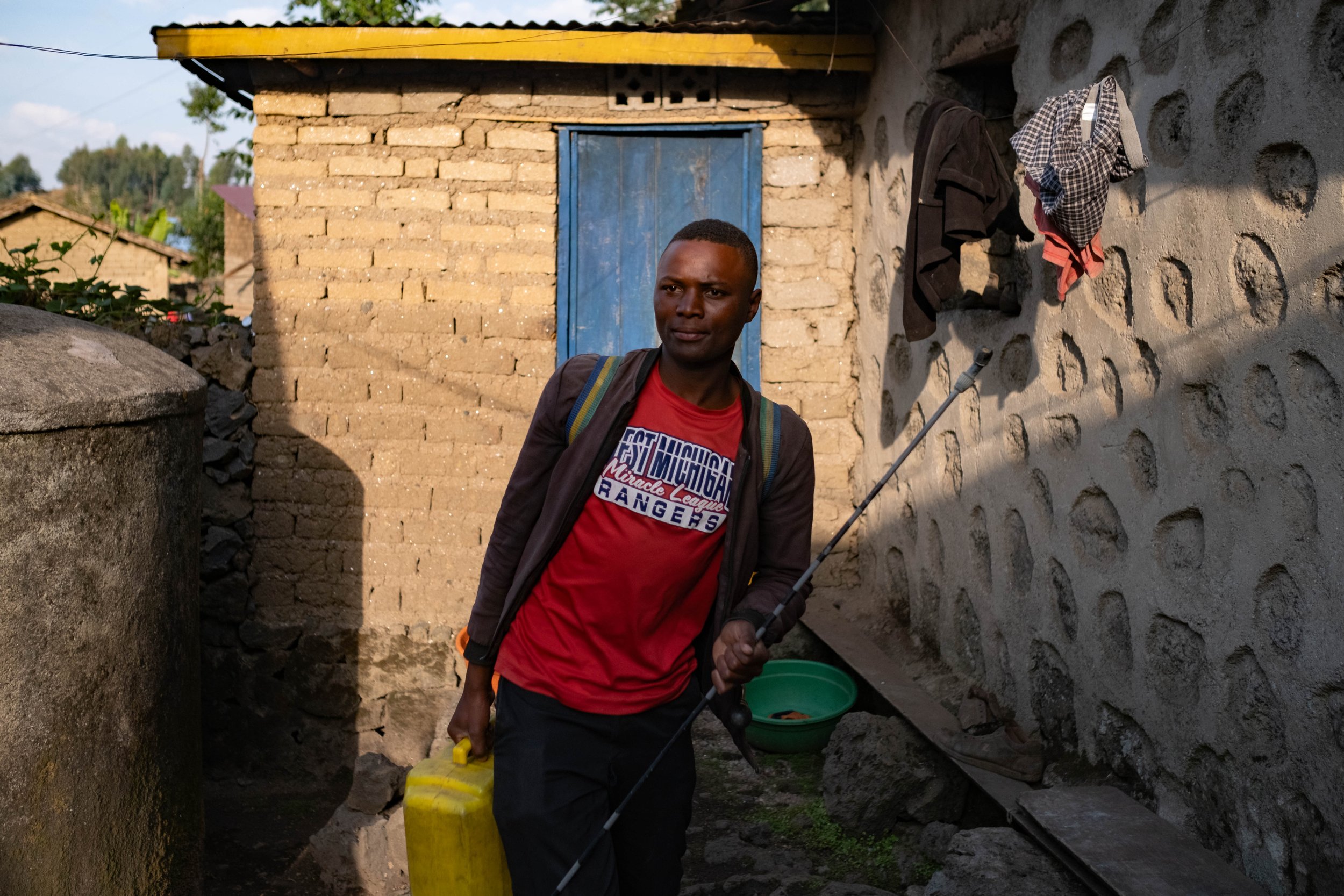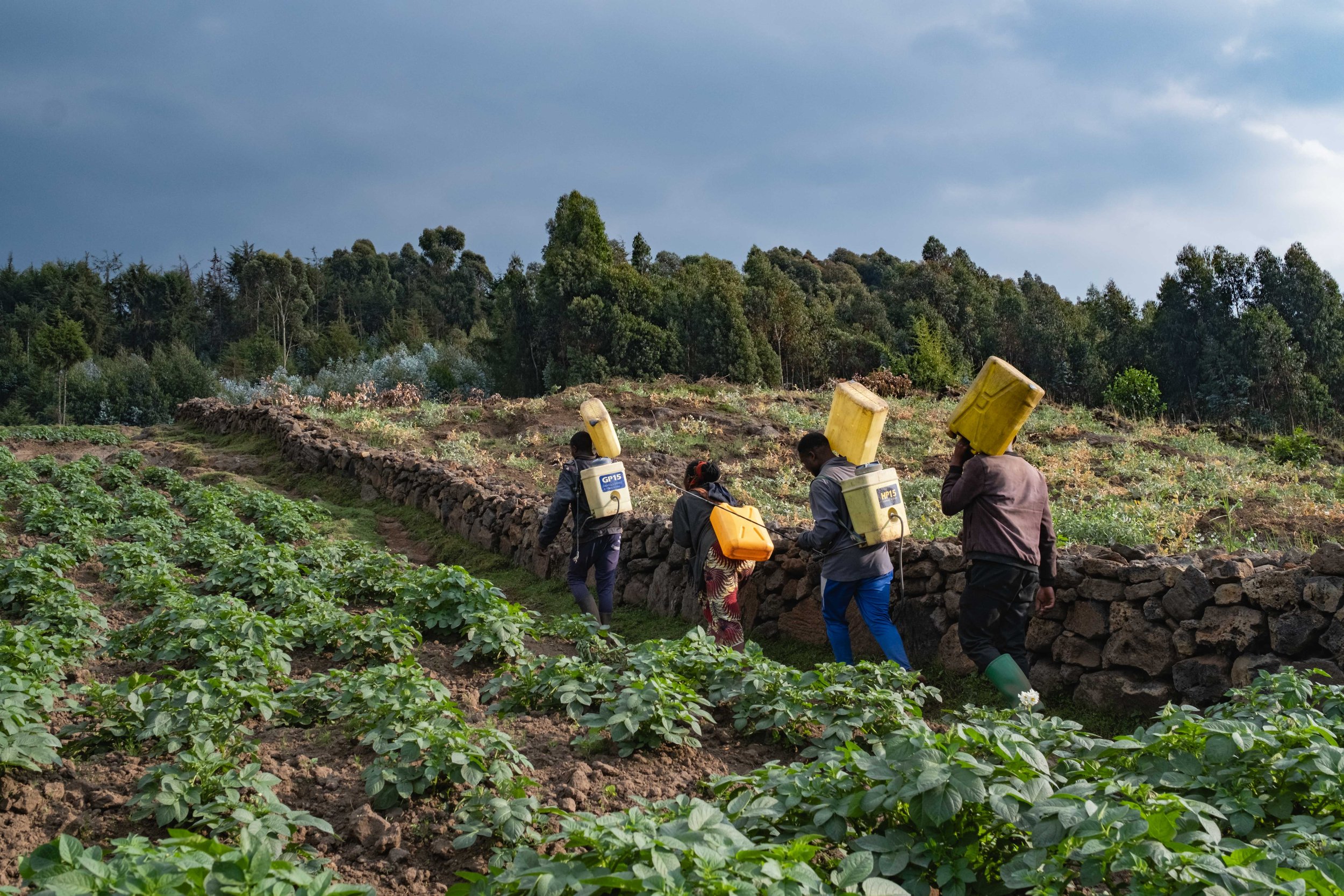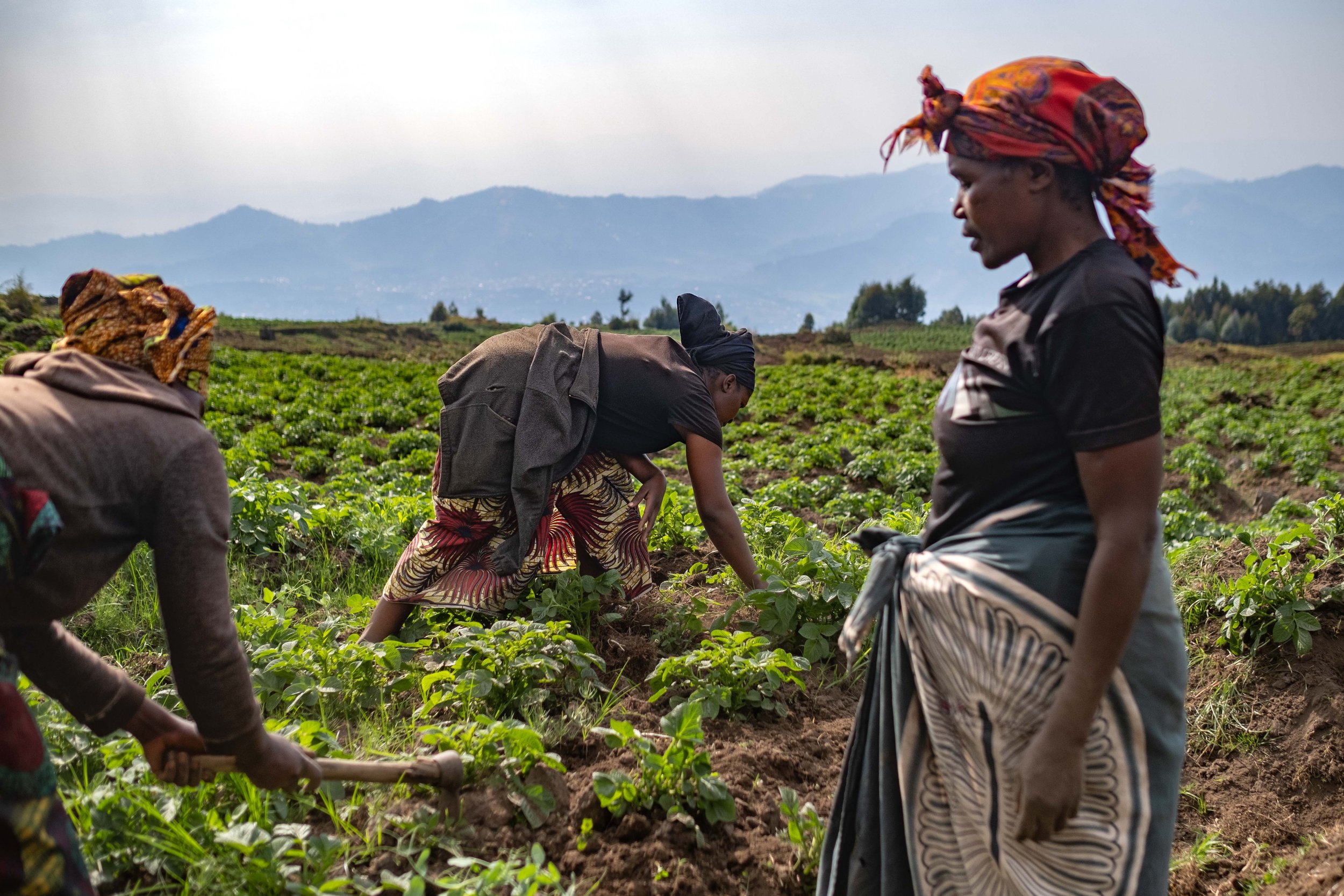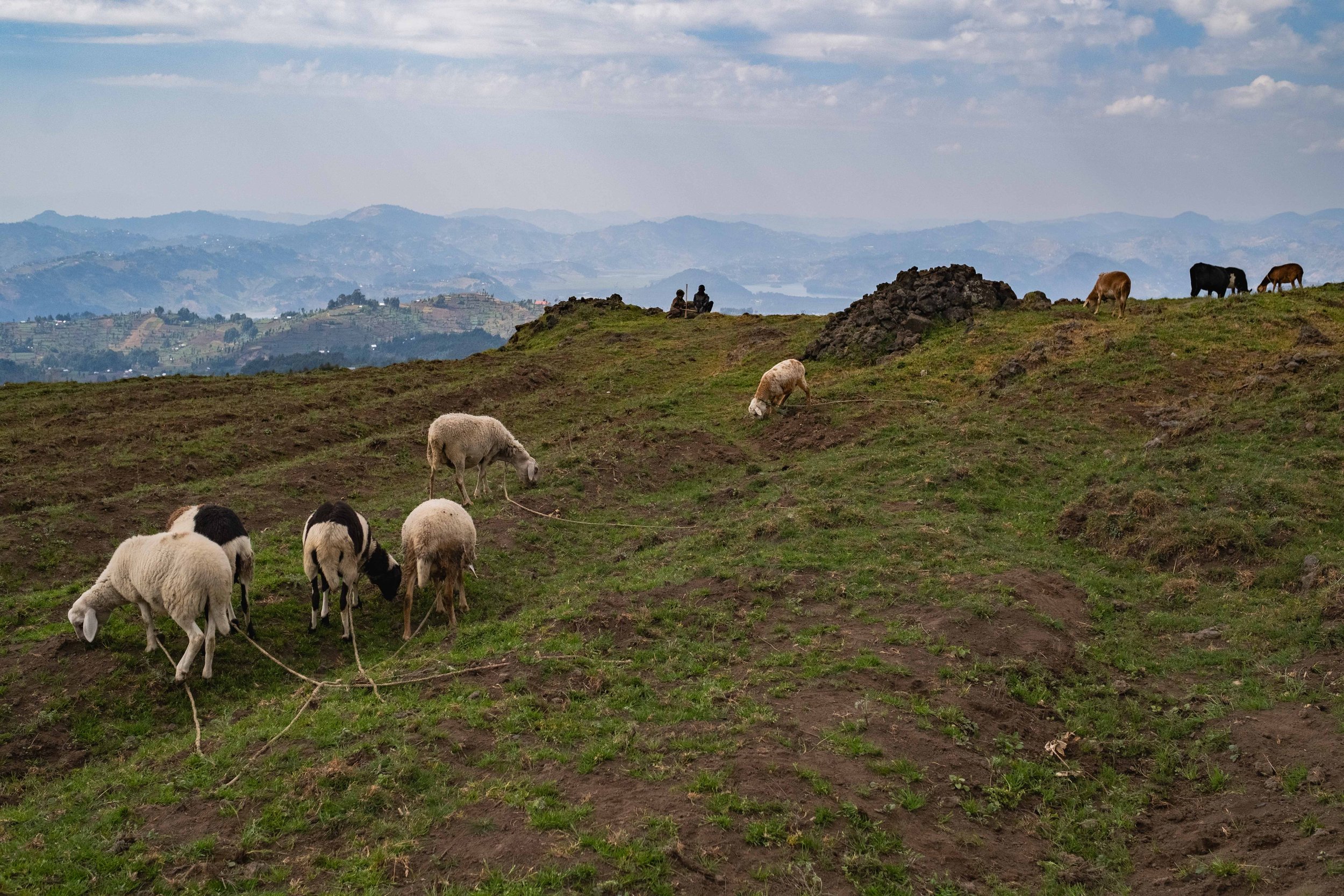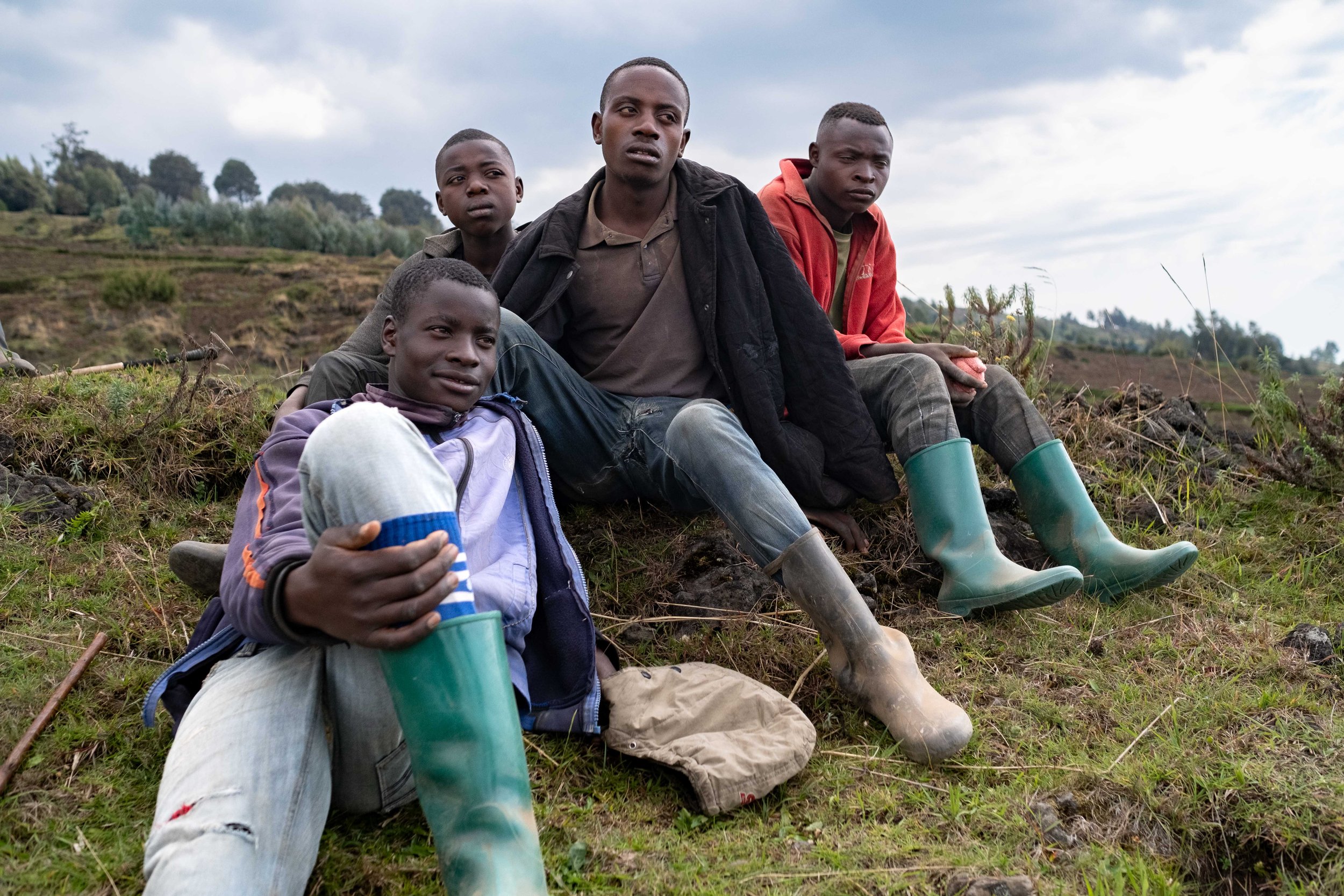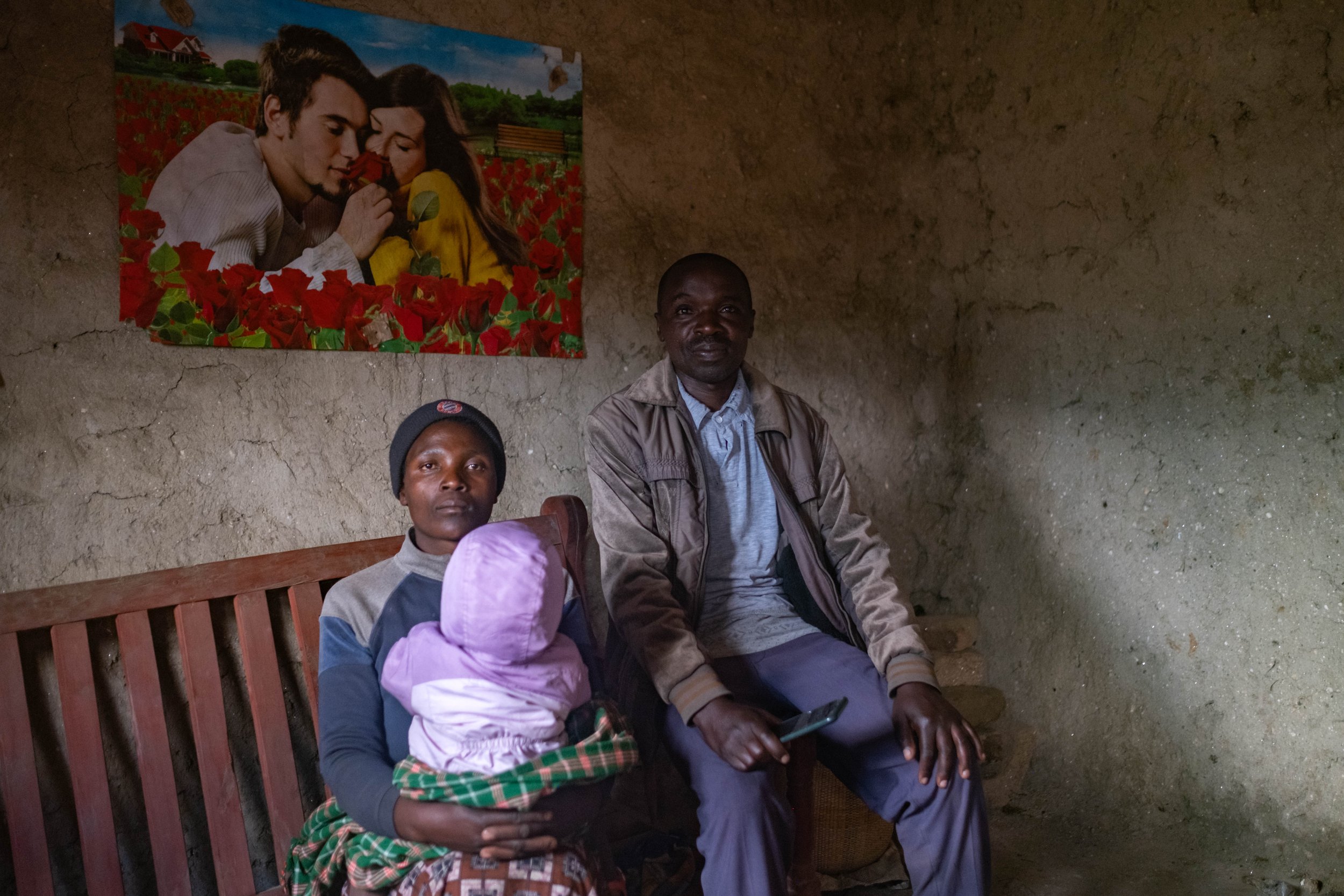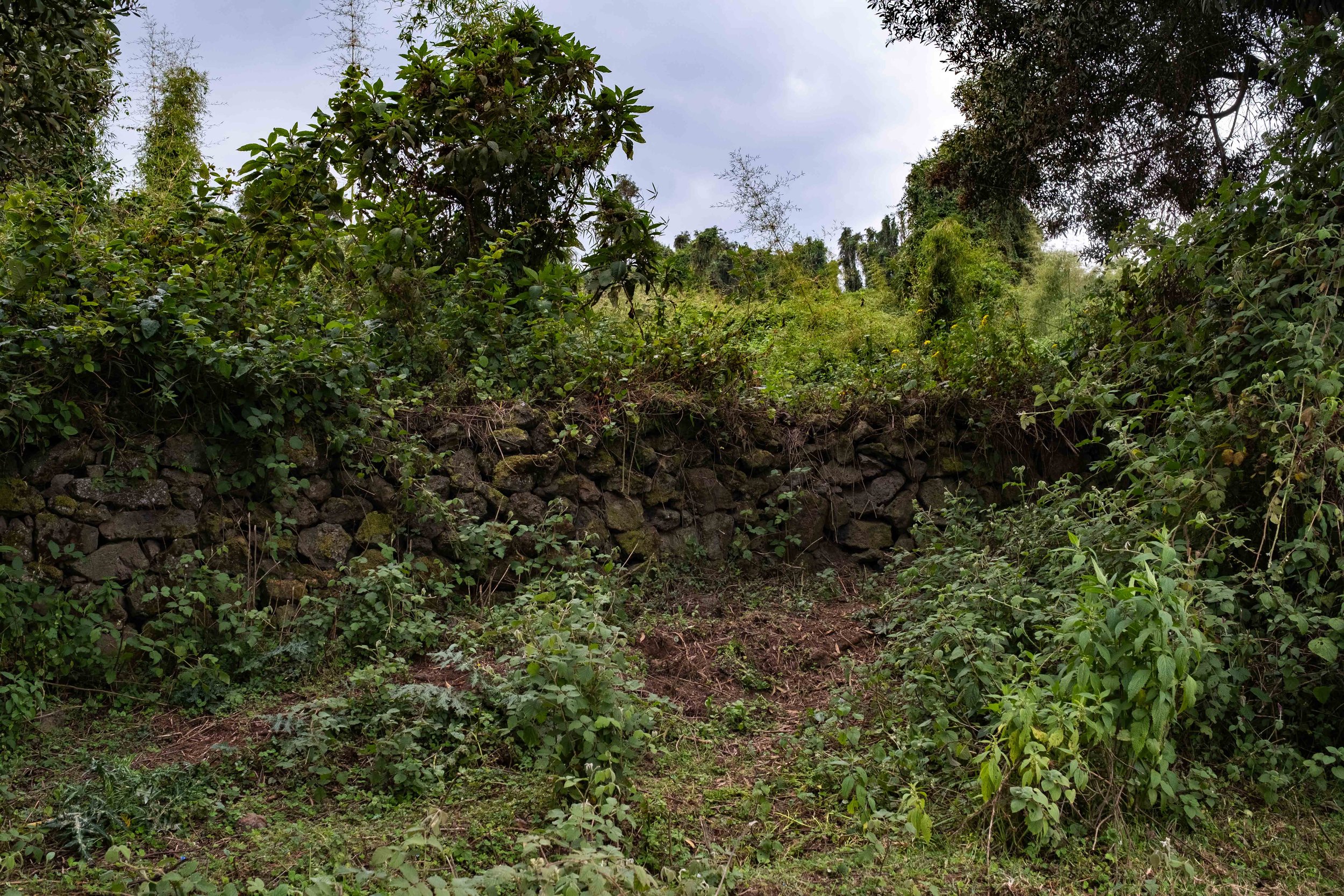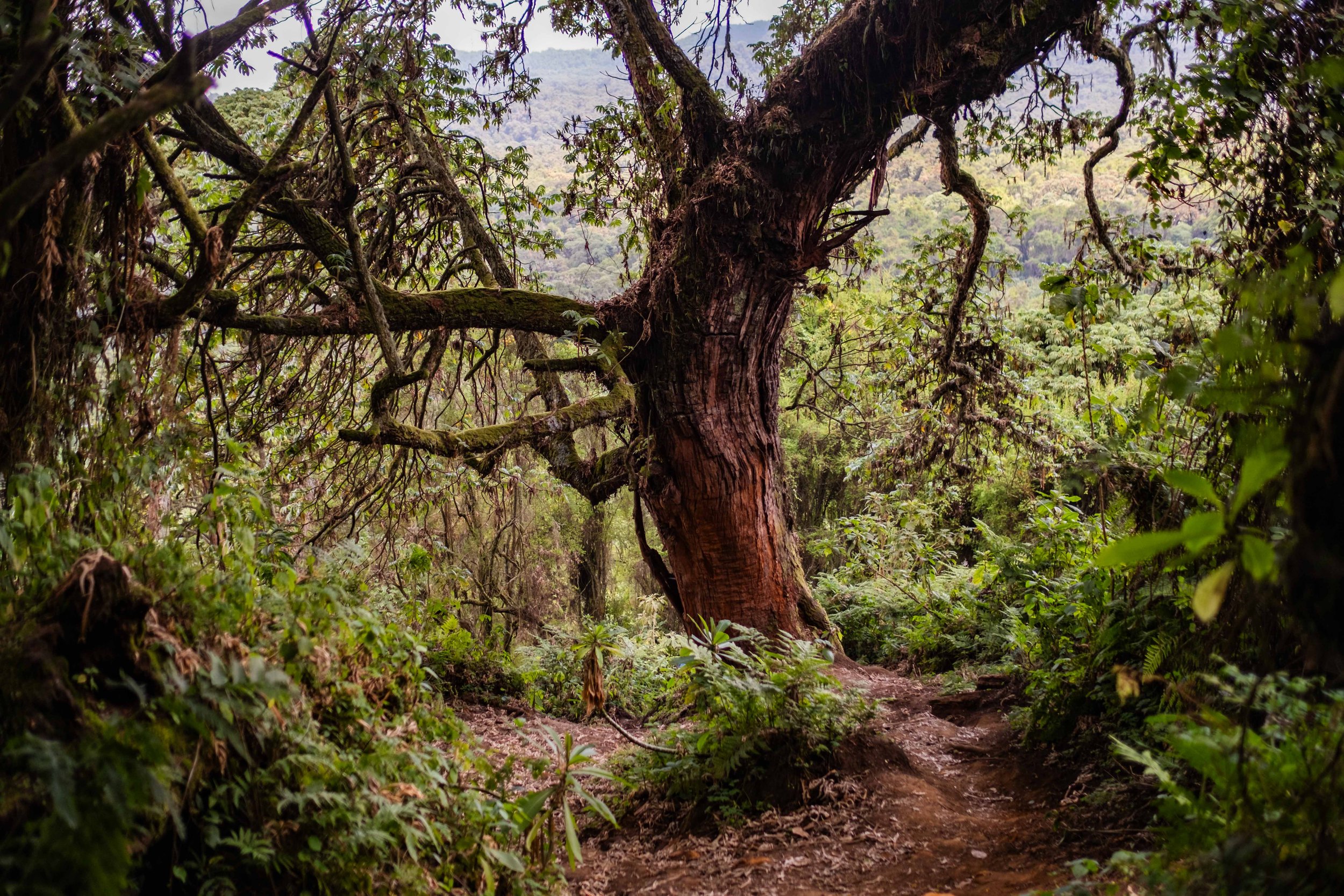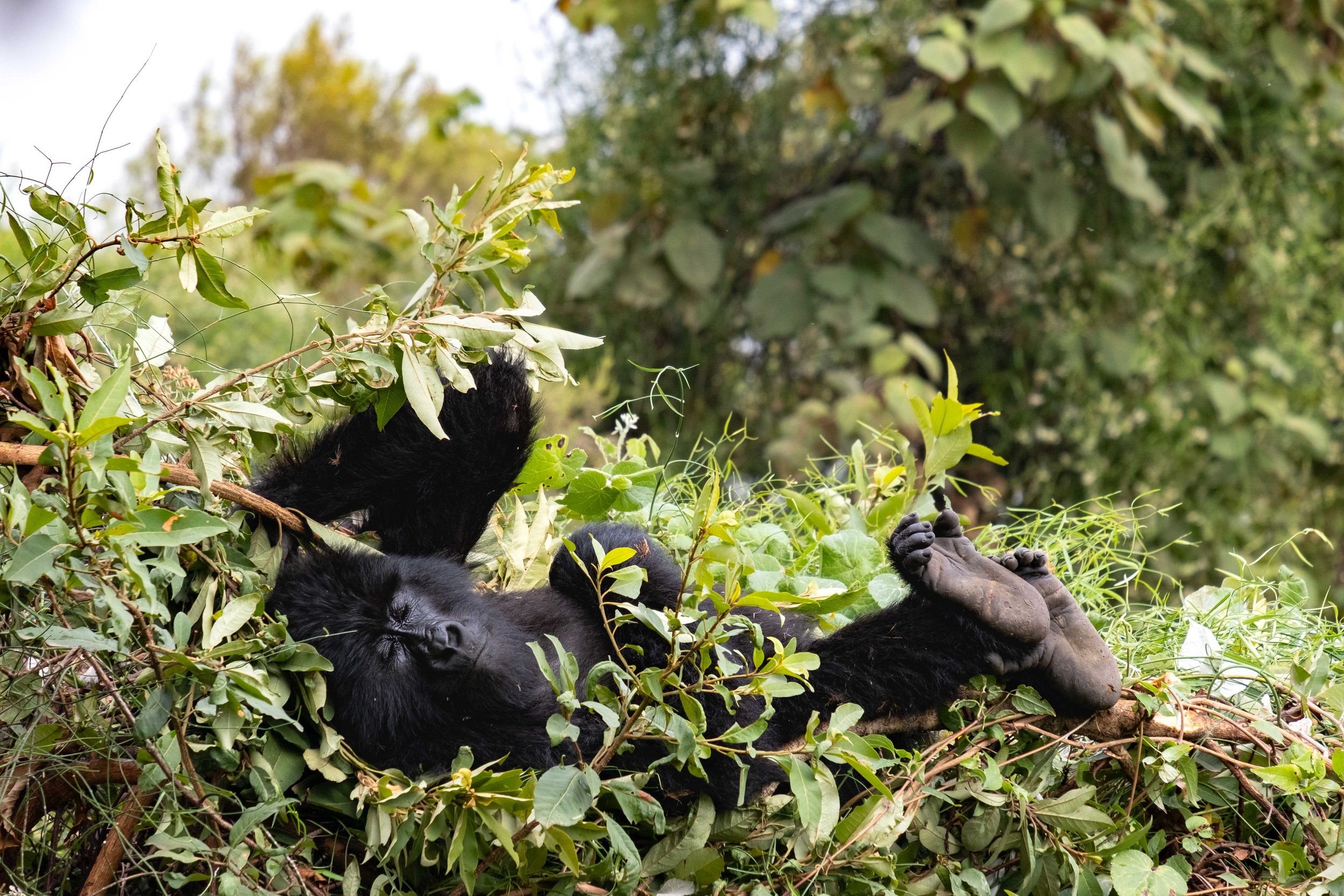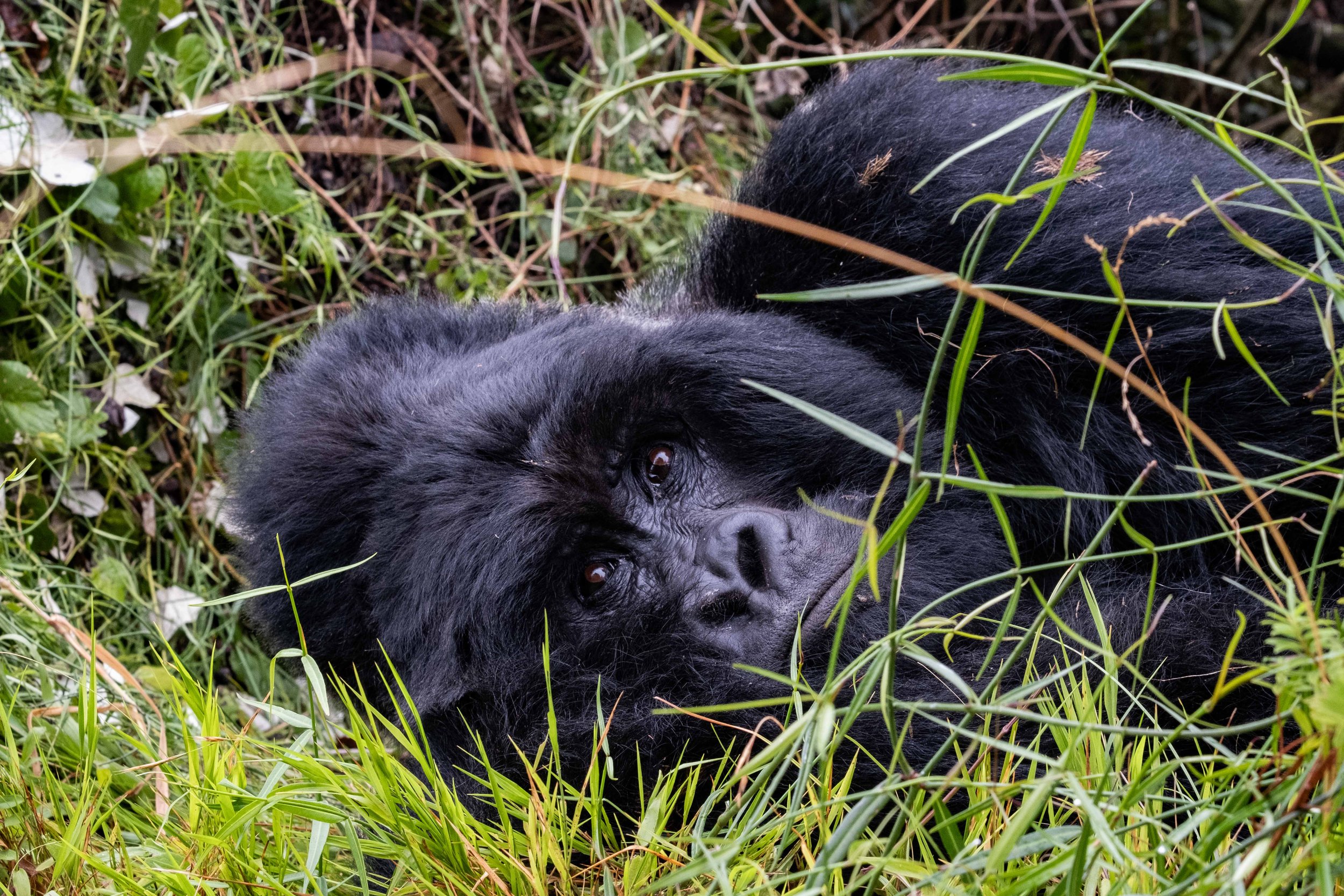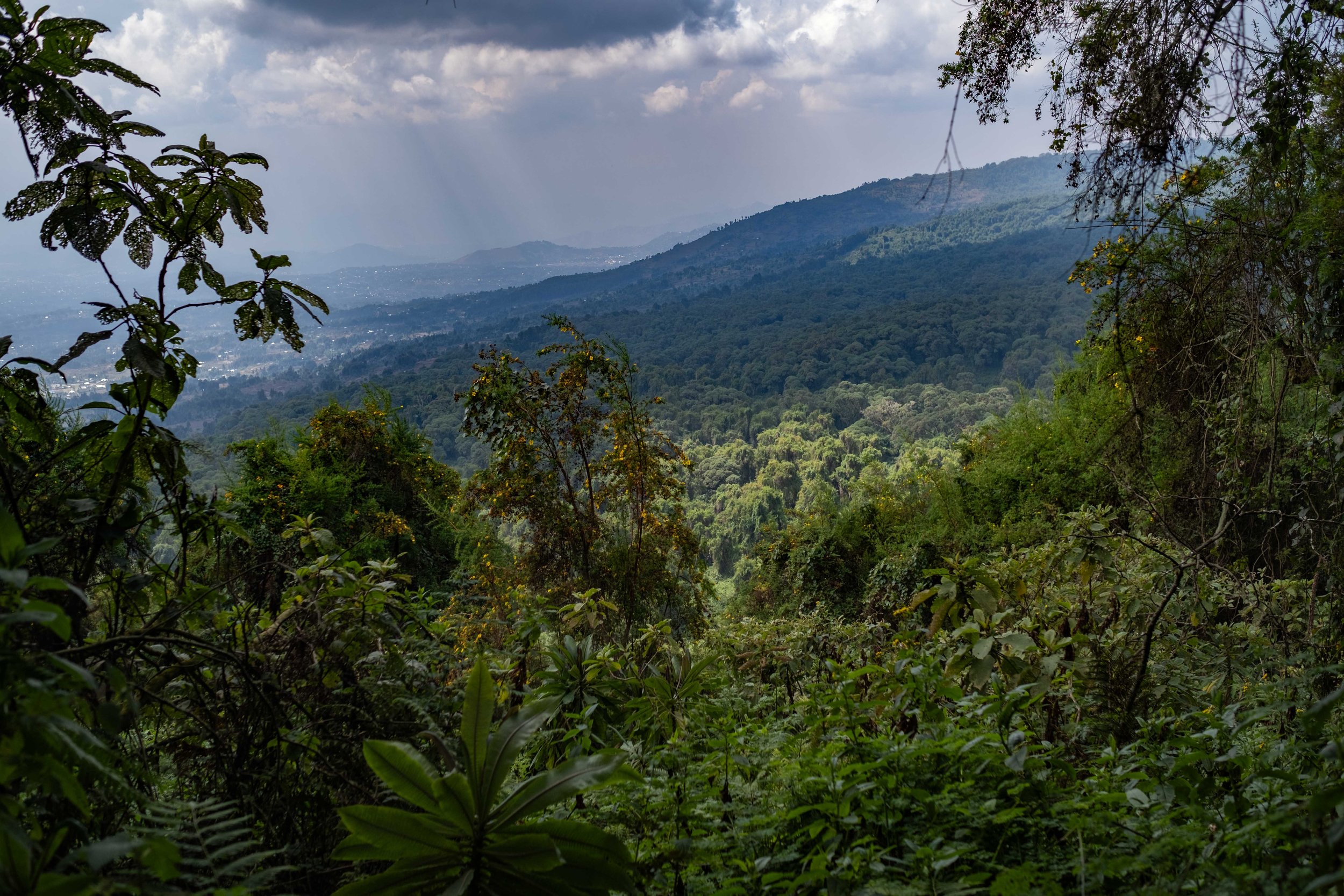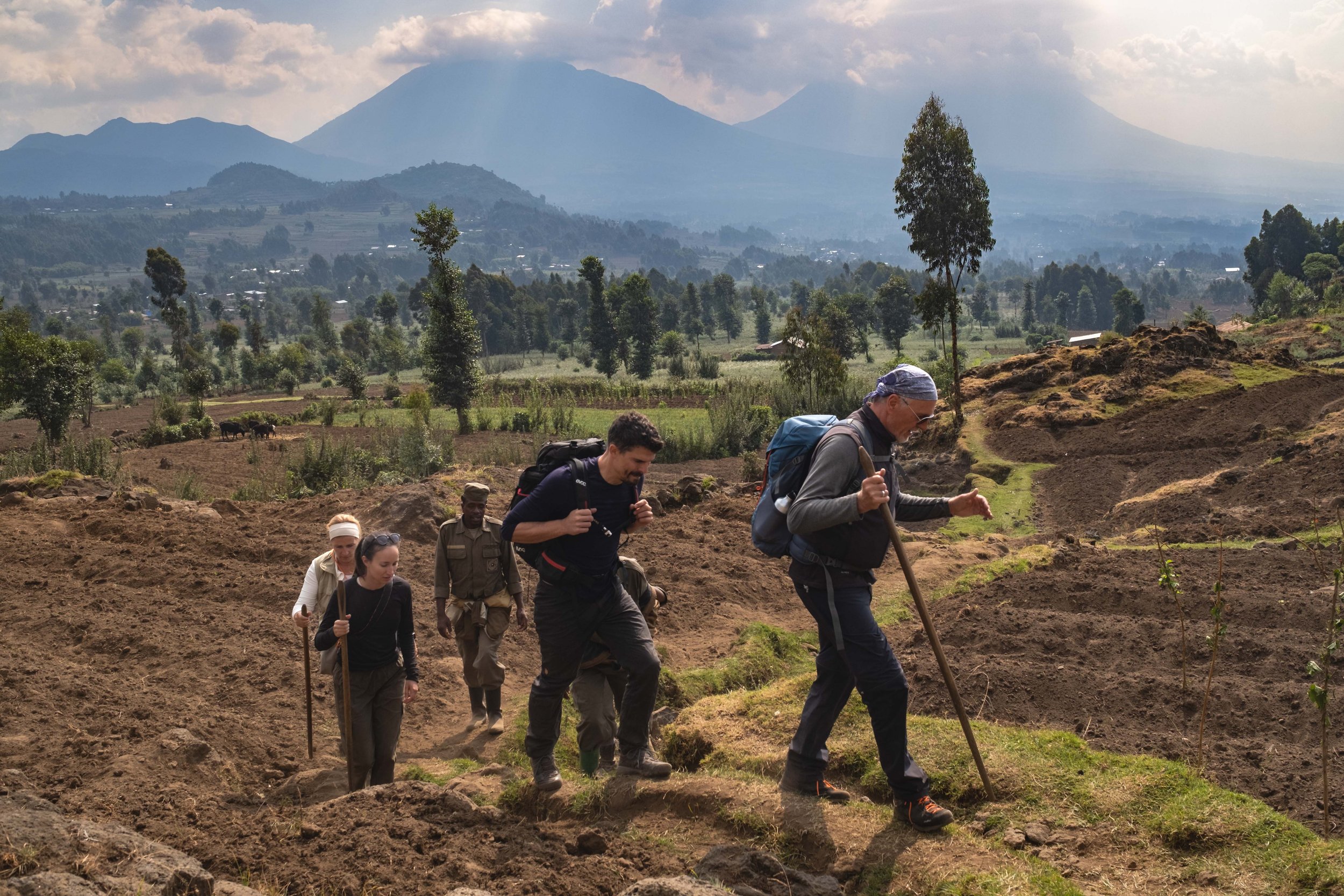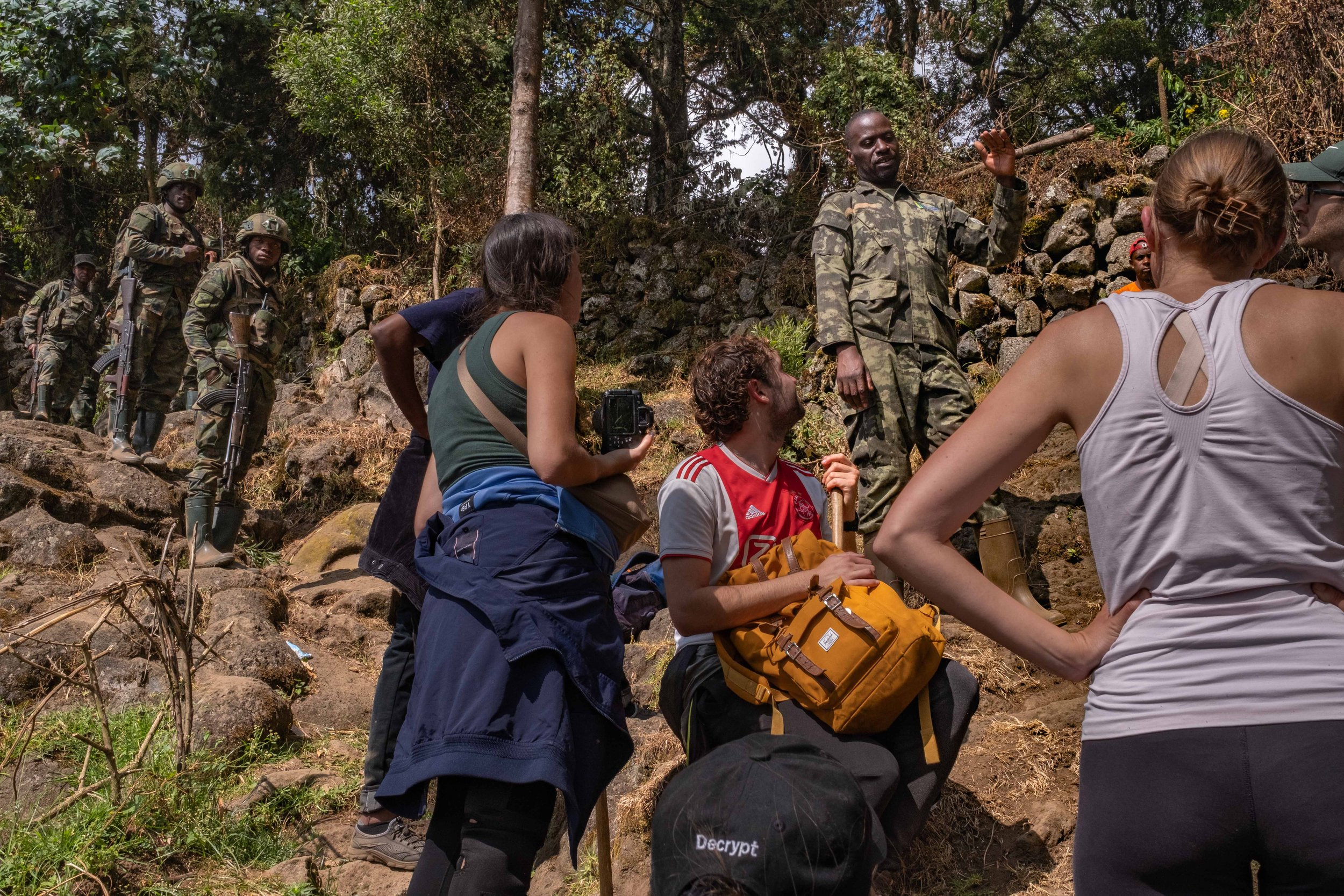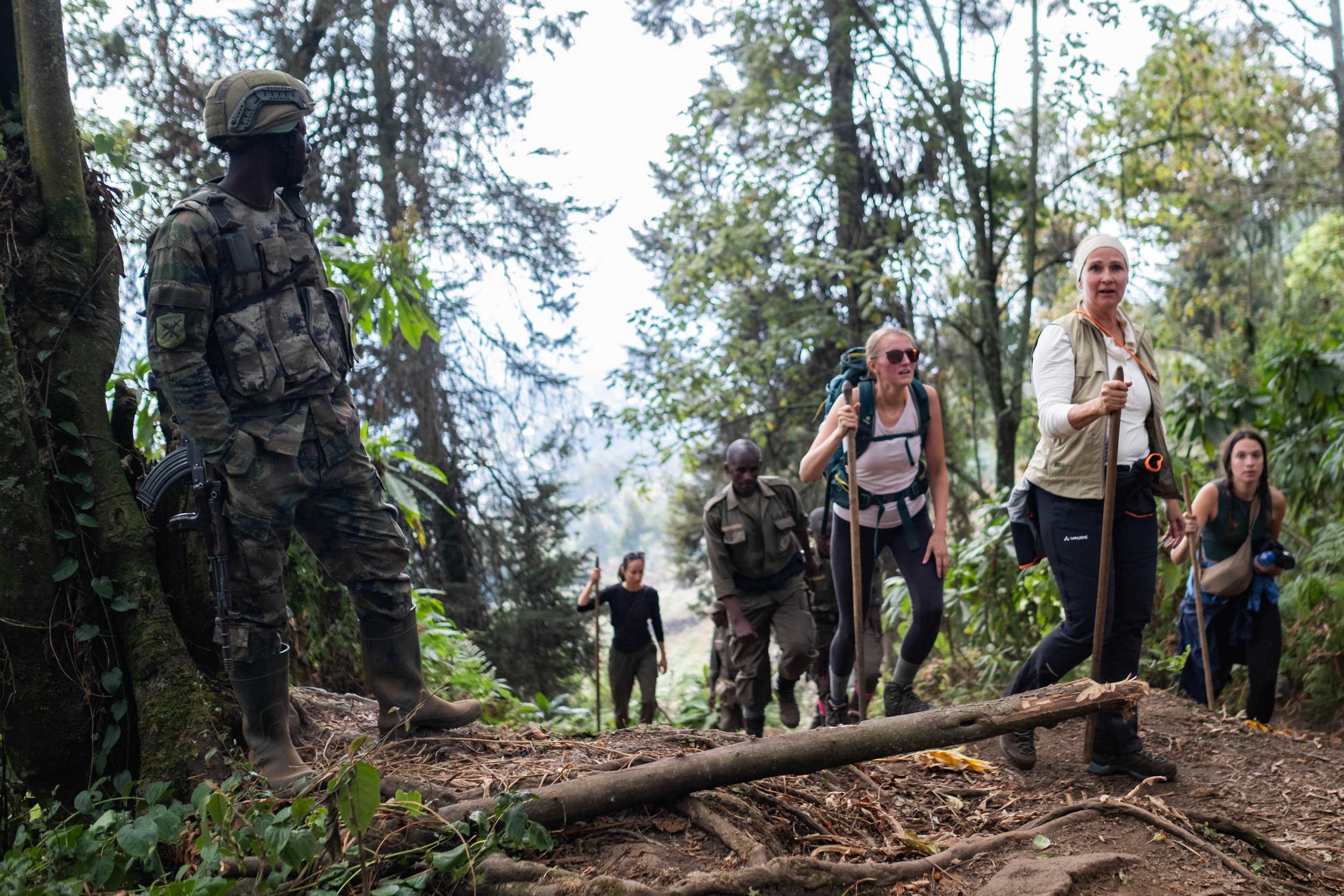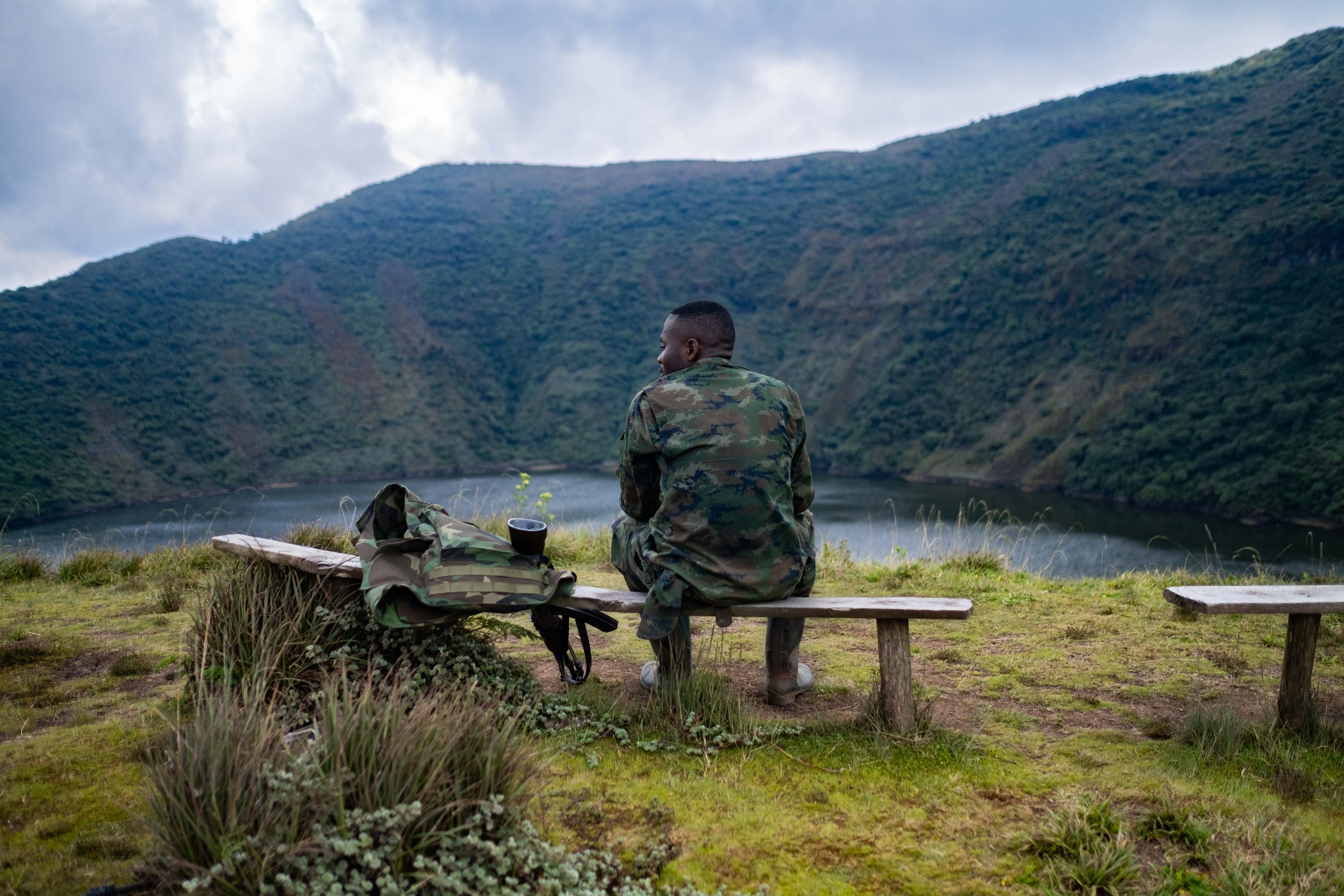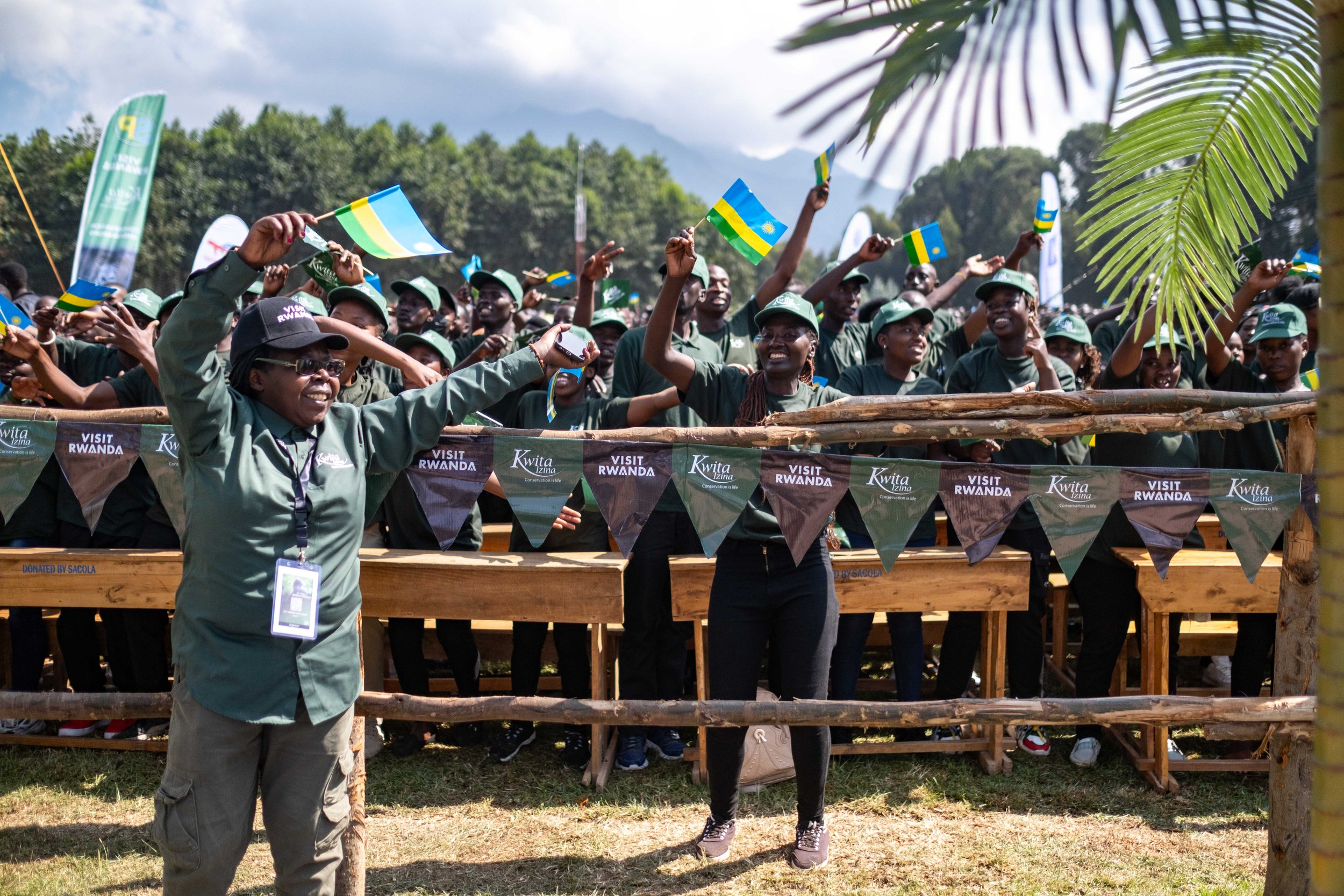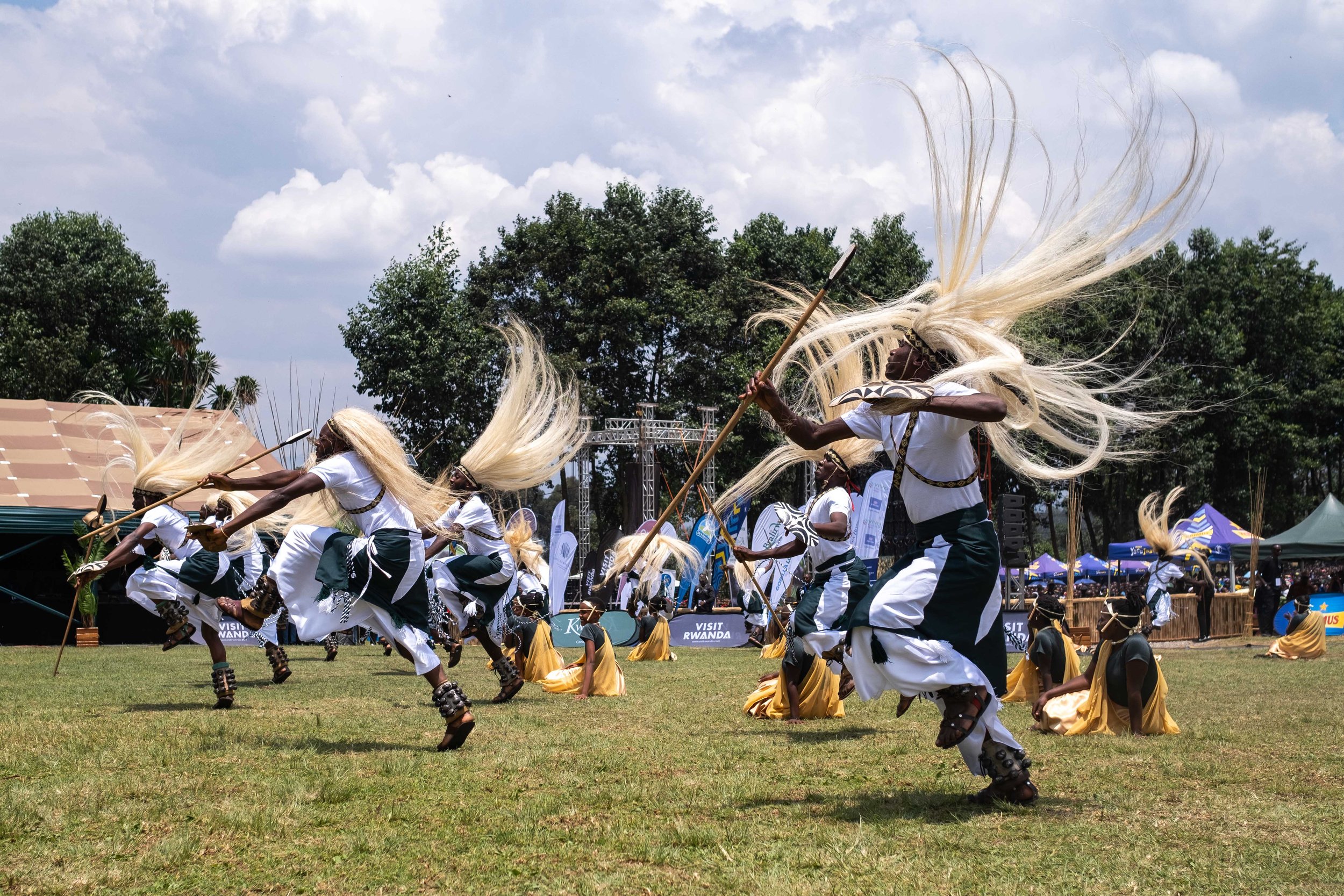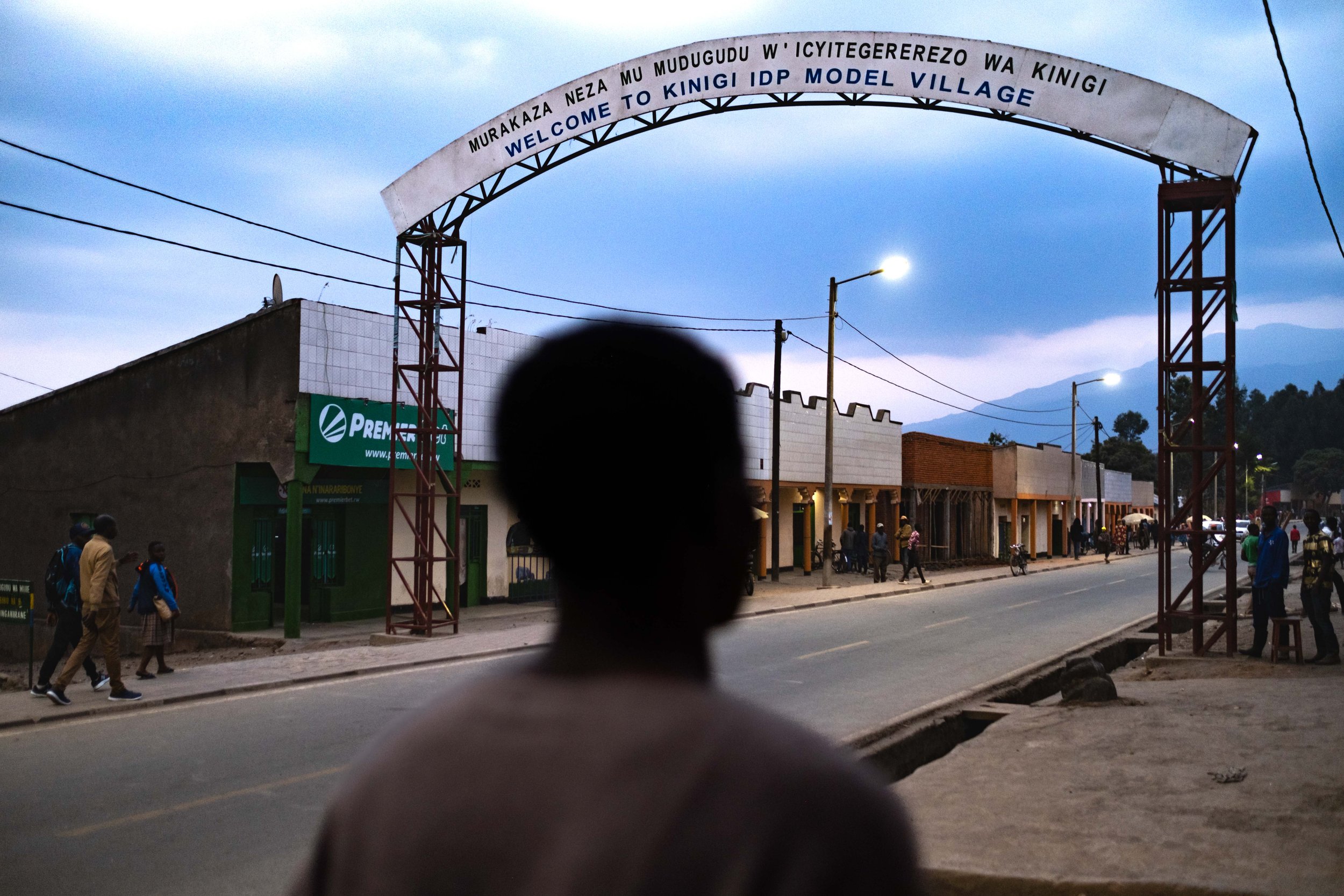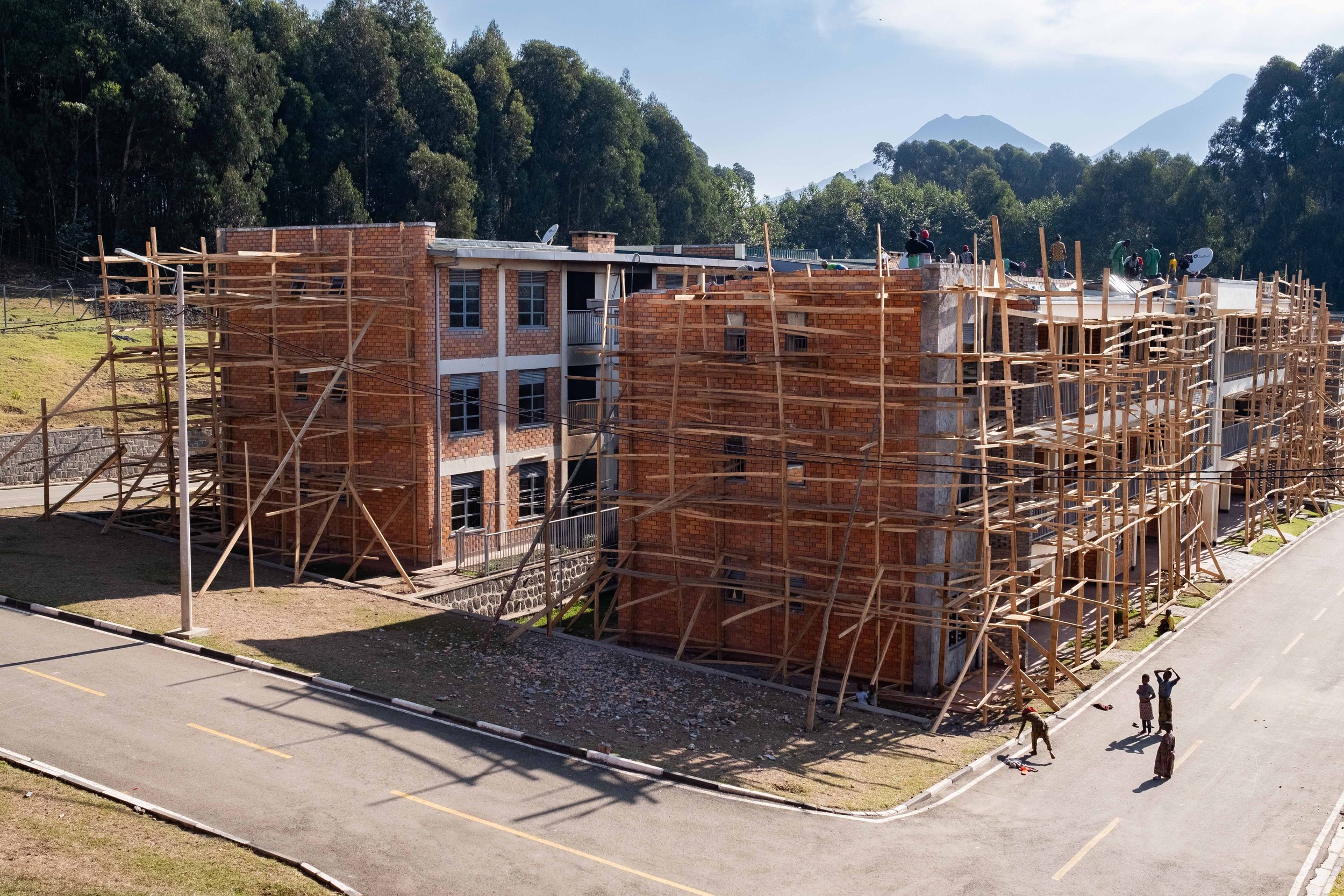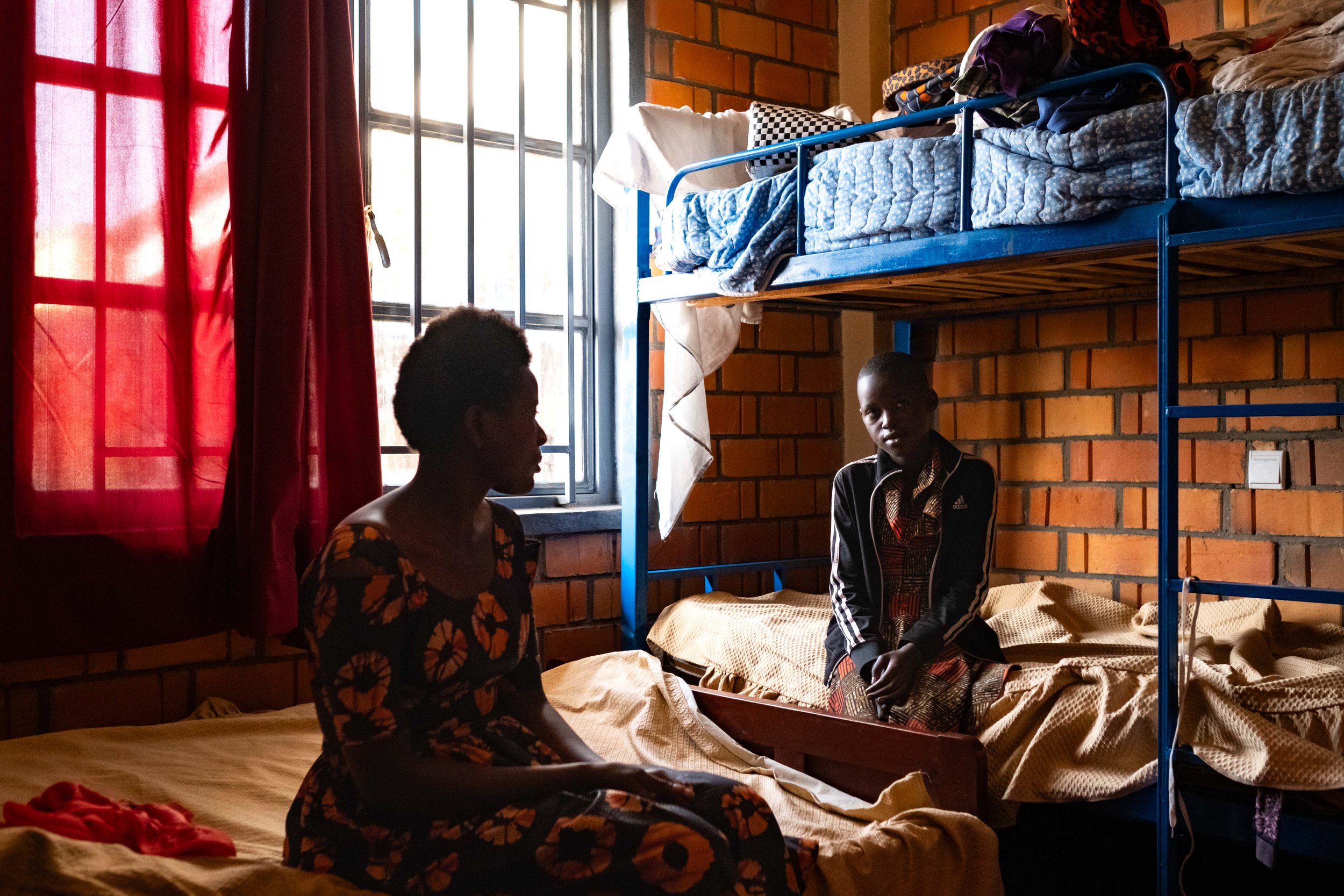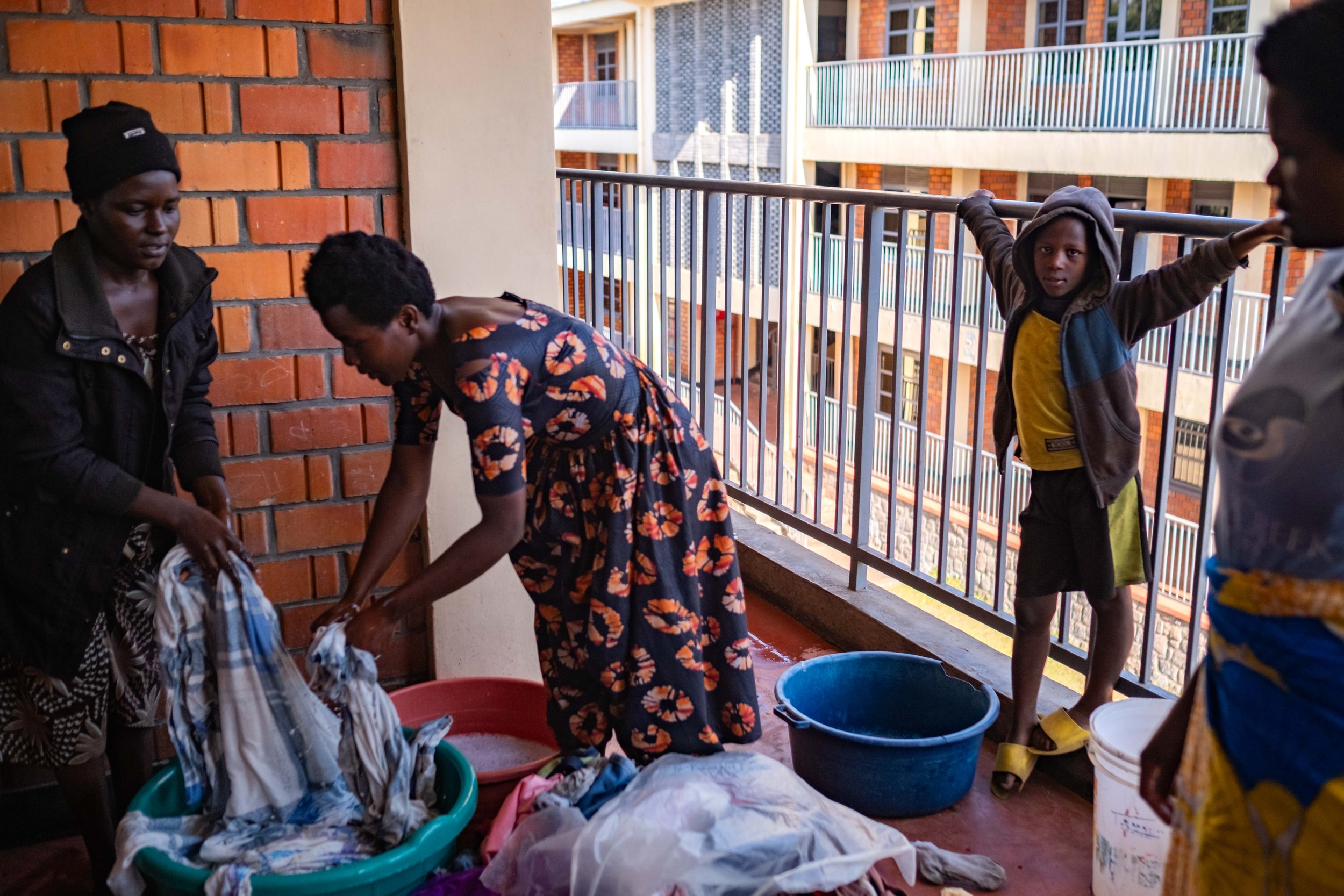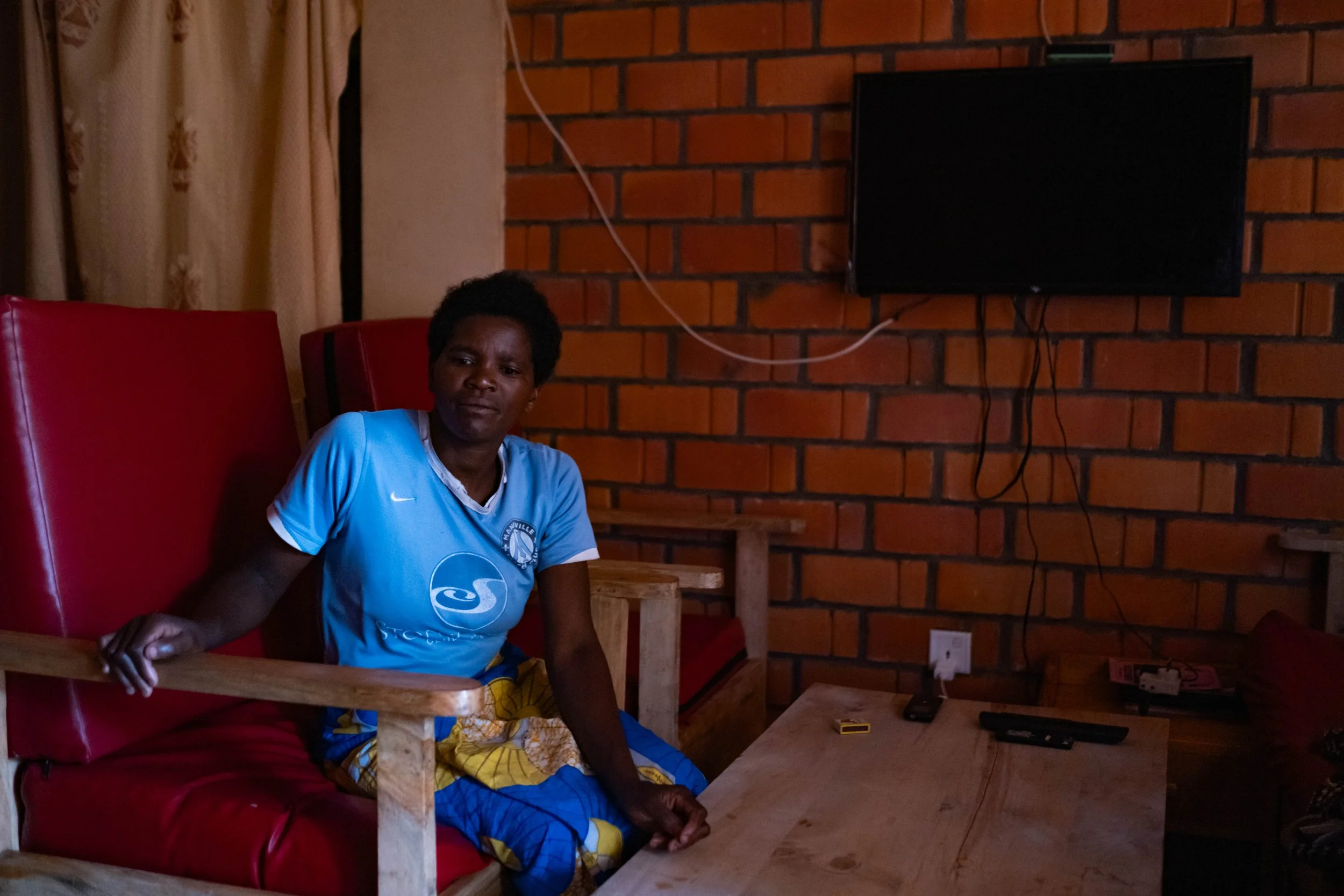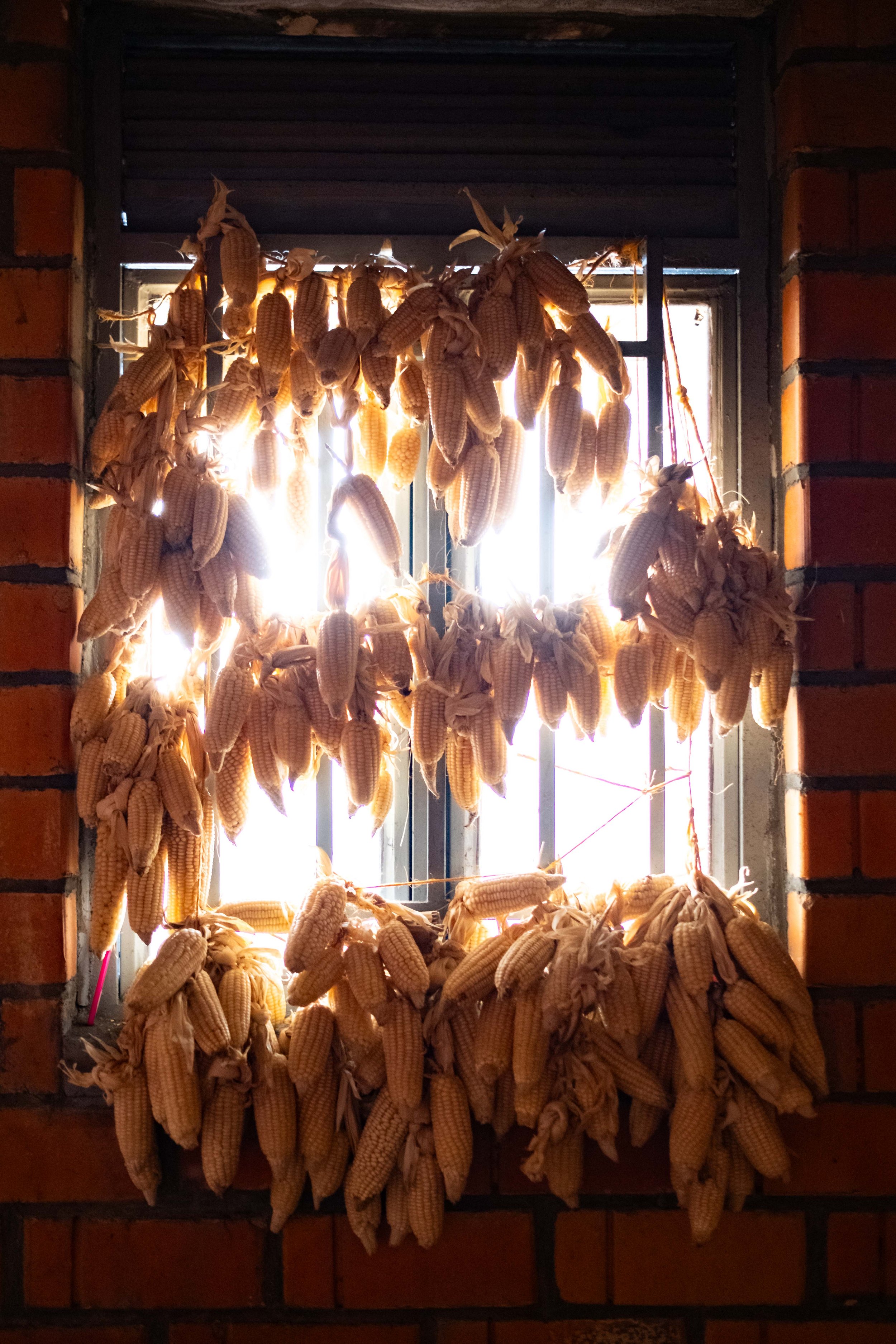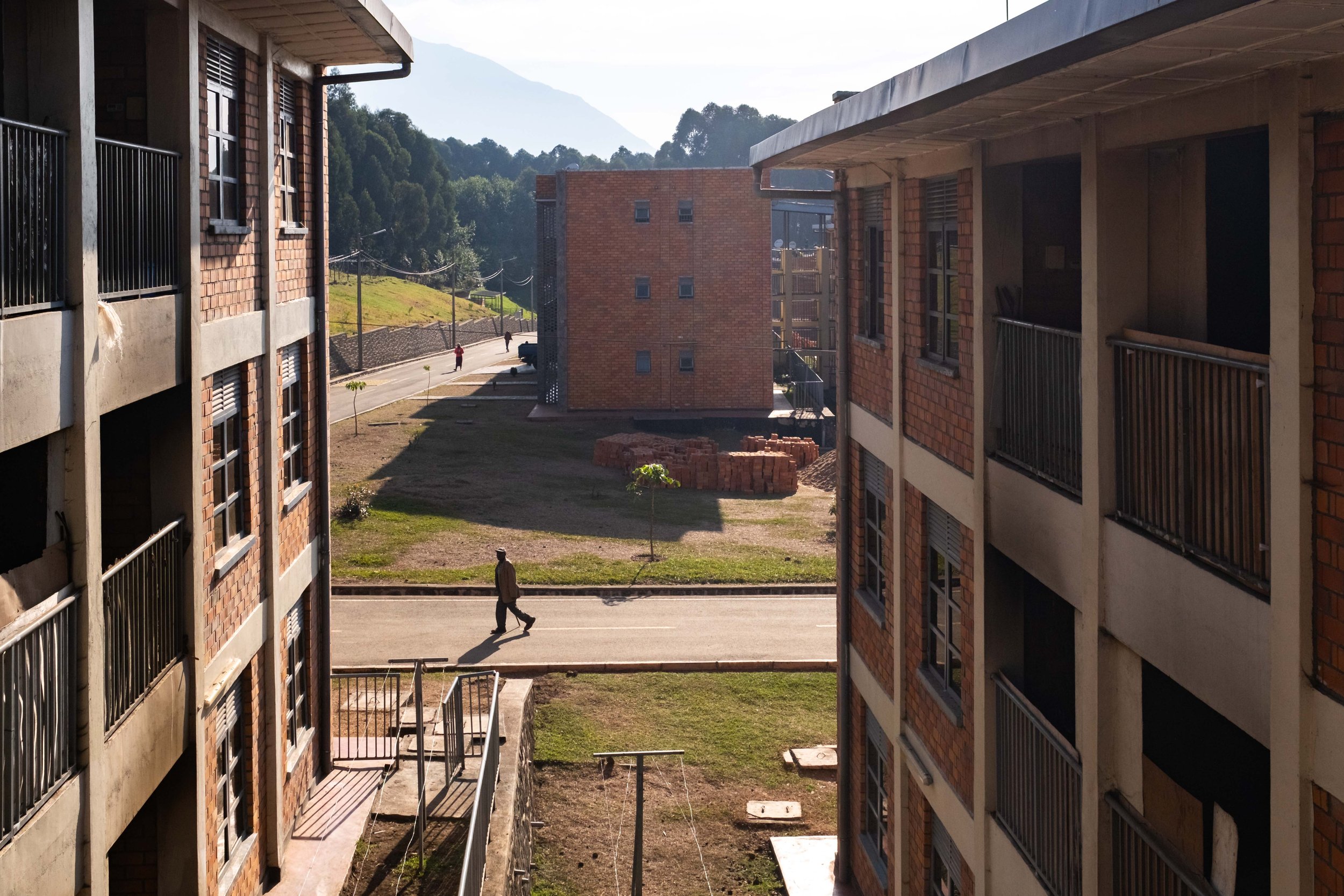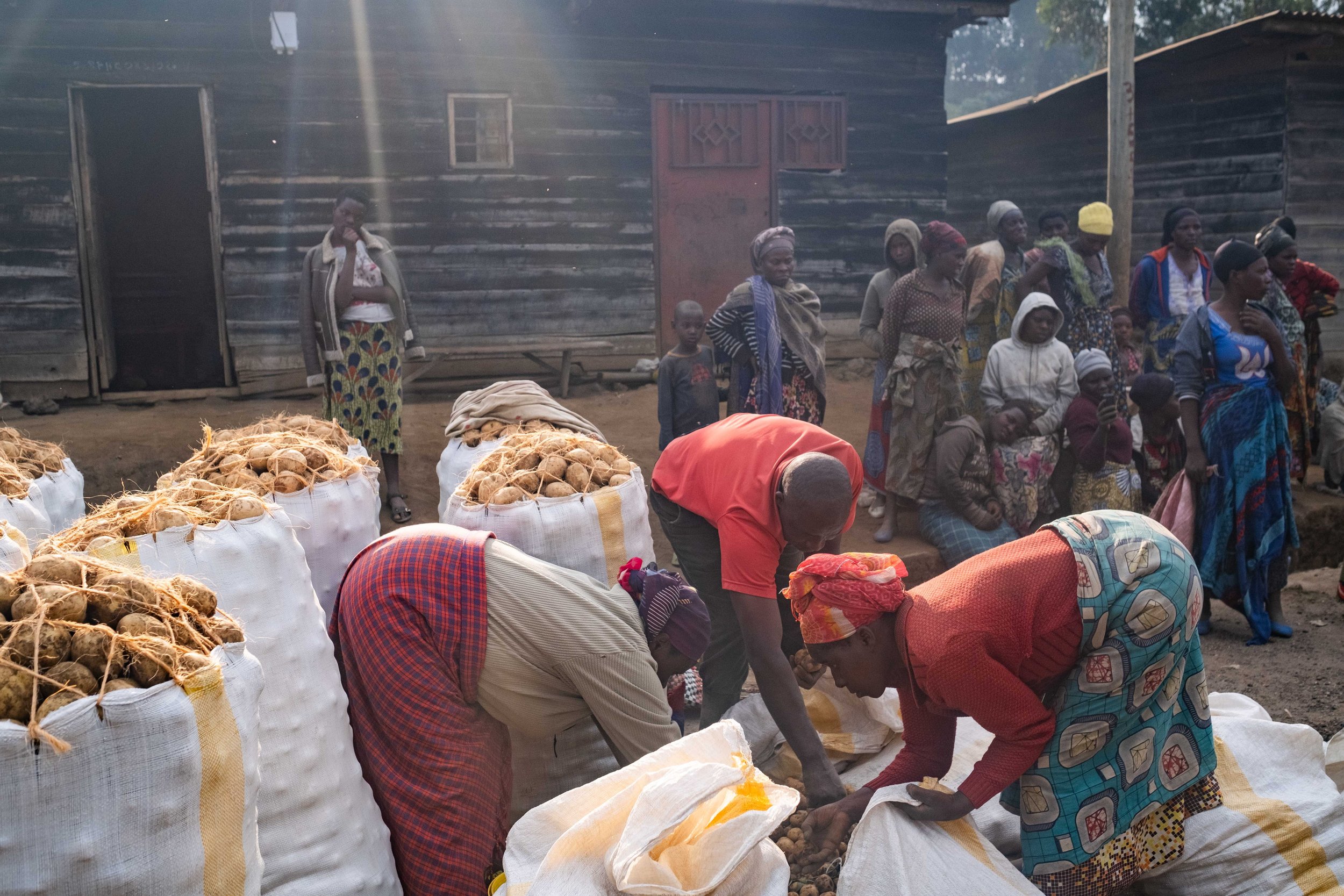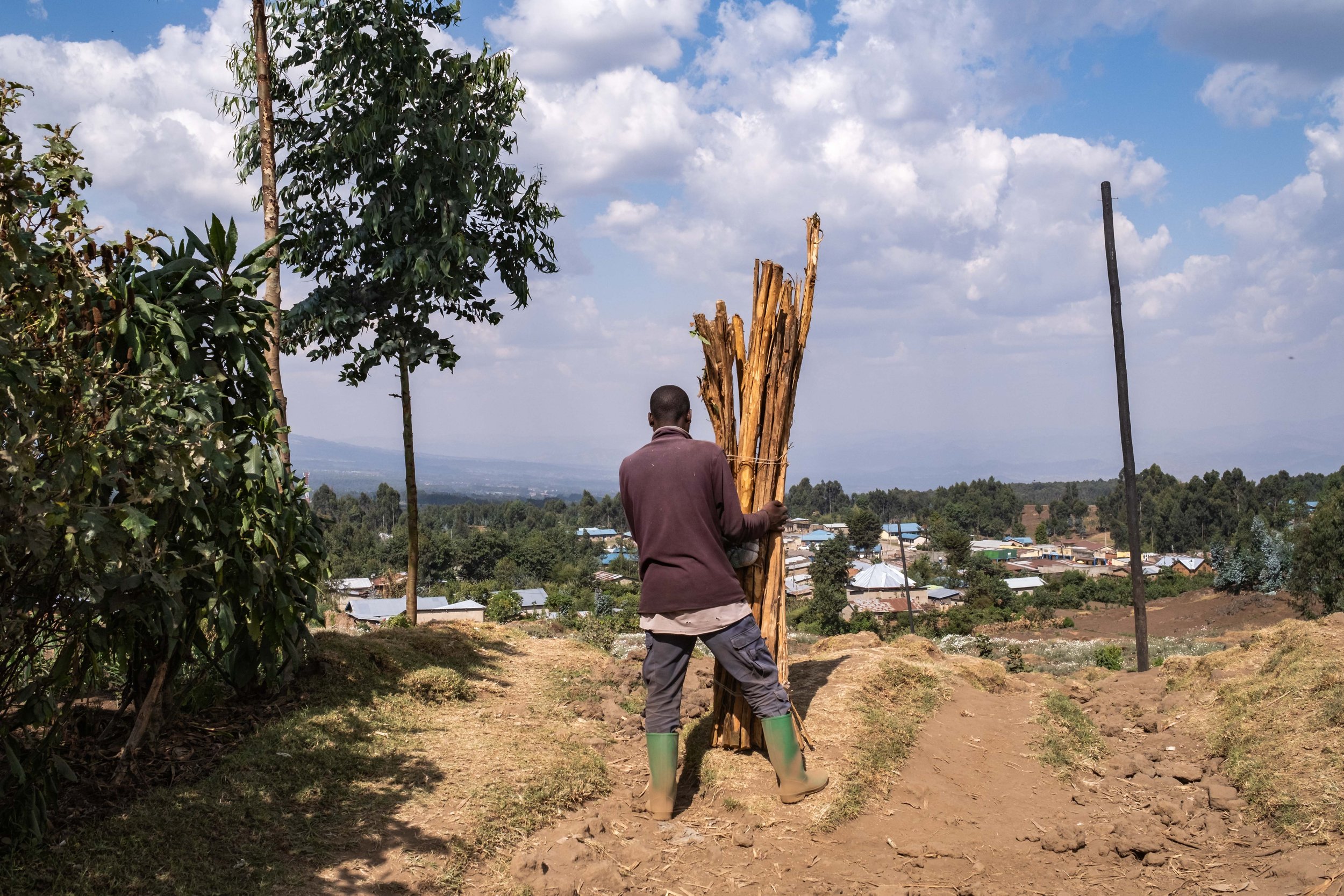Between 1969 and 1973, 1,050 hectares of the Volcanoes National Park in Rwanda were cleared to make way for pyrethrum plantations, a powerful natural insecticide. Today, these famous plants can no longer grow at the foot of the mystical Virunga forest, a result of climate change and overpopulation. The government has decided to restore the endemic trees and mountain gorillas through a park extension project estimated to cost over $255 million. Volcanoes National Park in Rwanda was the first national park to be created in Africa (in 1925). It is one of the few places where one can observe the last mountain gorillas. A safari for the chance to spend an hour by their side costs $1,500 per person. The park also borders the sensitive border with the Democratic Republic of Congo (DRC), where a conflict rages behind the volcanic chain. Armed rebel groups are actually established in the Virunga, on the DRC side, forcing the Rwandan army to accompany tourists on their safaris.
In one of the African countries with the highest population density per square kilometer, the population is rapidly increasing, and villages are replacing the former pyrethrum fields. As a result of this extension project, many inhabitants must abandon their lands and homes. They are then relocated to so-called "model" villages built from scratch by the government. Although since 2005, the Rwandan state has dedicated nearly 10% of tourism revenues to investing in infrastructure for the local residents, this expropriation significantly disrupts the villagers' way of life, causing them to lose their agricultural practices.
Produced for La Vie with journalist Margaux Solinas.
